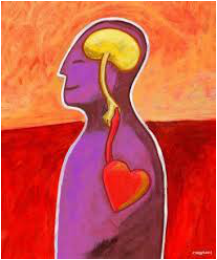El hombre desaprueba lo que no puede realizar. (Human beings disapprove of things they can't achieve.) (8-1)
 Where do you fit into the scheme of things?
Where do you fit into the scheme of things? Envy and frustration are at the heart of this proverb. We all have dreams and goals we want to achieve, but as the years go by, we start to suspect that some of those things are never going to happen. Maybe it's due to factors beyond our control, maybe it's due to our own lack of initiative or skills. Or, maybe those dreams were too far out of our reach and we didn't have the wisdom to see that sooner.
Imagine, for example, a young man who dreams of starting his own company and being the boss. He imagines himself in a leadership position and thinks about what a great boss he's going to be. He will be a problem-solver, he's going to motivate others to be successful, everyone will admire him. He'll have a lot of money, buy a big house, and take vacations in exotic places. By the time he's fifty, though, none of this has come to pass. He's working in an office in an assistant manager position, he's making a decent living but he doesn't have the house, money or dream vacations he hoped for. Even worse, his boss is unbearable. He's demanding, he lacks vision, he doesn't appreciate or value the people that work for him. The employee feels stuck. He's not the leader he dreamed he would be, and he's forced to work for a person he doesn't respect. This is a recipe for frustration and unhappiness.
Imagine, for example, a young man who dreams of starting his own company and being the boss. He imagines himself in a leadership position and thinks about what a great boss he's going to be. He will be a problem-solver, he's going to motivate others to be successful, everyone will admire him. He'll have a lot of money, buy a big house, and take vacations in exotic places. By the time he's fifty, though, none of this has come to pass. He's working in an office in an assistant manager position, he's making a decent living but he doesn't have the house, money or dream vacations he hoped for. Even worse, his boss is unbearable. He's demanding, he lacks vision, he doesn't appreciate or value the people that work for him. The employee feels stuck. He's not the leader he dreamed he would be, and he's forced to work for a person he doesn't respect. This is a recipe for frustration and unhappiness.
Identify the Root of the Problem
 What went wrong?
What went wrong? There are a couple of natural responses to this situation. The employee can either turn his frustration inward and blame himself for being a failure. Or, he can turn it outward and find fault with the system that put another man in his place. Why did that other man get chosen to be the boss? Envy comes into play when the employee starts counting all the advantages the boss enjoys. Maybe he went to a more prestigious university and has a more impressive title. Maybe he has personal connections with the "right" people who helped him move up the ladder. Maybe he just had better luck. Whatever the reasons, it seems unfair. Not only is the employee going to resent the boss, but he's going to resent the circumstances that put the other man in a superior position. The dissatisfaction the employee feels with his job leads to disapproval of all the things the boss represents: the man's political party, his economic status, his values, his way of being. The dream of being the boss fades, and becomes, instead, an undesirable goal. Who wants to be the boss in a corrupt system that rewards the wrong people for the wrong reasons?
This is not just a case of "sour grapes." Eye-unle talks about the importance of knowing where you belong in a hierarchy, and assuming your rightful place. If you are born to be the head, you can't end up as the tail. You'll never be satisfied with that role. Not everyone is meant to be the head. Leadership requires a special set of characteristics and skills. People who end up as the head and don't belong there will be a disaster at their job. But people who were meant to be the head and don't achieve that goal will also be a disaster at their job if they settle for a position that's beneath them. Some people don't mind occupying a lower place in the hierarchy of things. Working a simple job with few responsibilities and little stress has its own rewards. Some people prefer to keep a low profile and stay out of the limelight. They aren't driven and don't depend on their job to give them a sense of identity. They have no trouble letting others run the show, because they don't aspire to be a leader. But for those who were born to be the head, that's their personal destiny, and if they don't follow through on it, they will always be disappointed .
This is not just a case of "sour grapes." Eye-unle talks about the importance of knowing where you belong in a hierarchy, and assuming your rightful place. If you are born to be the head, you can't end up as the tail. You'll never be satisfied with that role. Not everyone is meant to be the head. Leadership requires a special set of characteristics and skills. People who end up as the head and don't belong there will be a disaster at their job. But people who were meant to be the head and don't achieve that goal will also be a disaster at their job if they settle for a position that's beneath them. Some people don't mind occupying a lower place in the hierarchy of things. Working a simple job with few responsibilities and little stress has its own rewards. Some people prefer to keep a low profile and stay out of the limelight. They aren't driven and don't depend on their job to give them a sense of identity. They have no trouble letting others run the show, because they don't aspire to be a leader. But for those who were born to be the head, that's their personal destiny, and if they don't follow through on it, they will always be disappointed .
Create the Conditions for Personal Success
 Recognize where you belong
Recognize where you belong This proverb tells us that we need to have dreams that correspond to our authentic selves. We need to know who we are, what we're capable of, what we really want, and what we're able to achieve. Self-confidence leads to a feeling of self-worth. If a person is meant to rise to the top, he needs to find a context where that can happen. He can't settle for less. He needs to create the circumstances, and not lose focus. Maybe he can't be the CEO of a billion dollar company, but he can live out his dream by finding what he does best and doing it. If he isn't recognized for his talents within an established structure, maybe he needs to move outside that structure and find or create a new one. Above all, the proverb tells us to not get stuck. Not all our dreams can come true, but some of them should. If we can take pride in what we've accomplished in life, then the few things we never accomplished won't mean so much to us. We won't envy a lifestyle that's so different from ours because we like the one we've created for ourselves. It suits us. Humans will always disapprove of someone or something, that's human nature. But if we use our energy to carry out our own projects and plans, bringing our dreams to fruition, we're less invested in the people and things that frustrate us, and less willing to spend time thinking about them. Overall, this leads to a more productive and happier life.





 RSS Feed
RSS Feed
